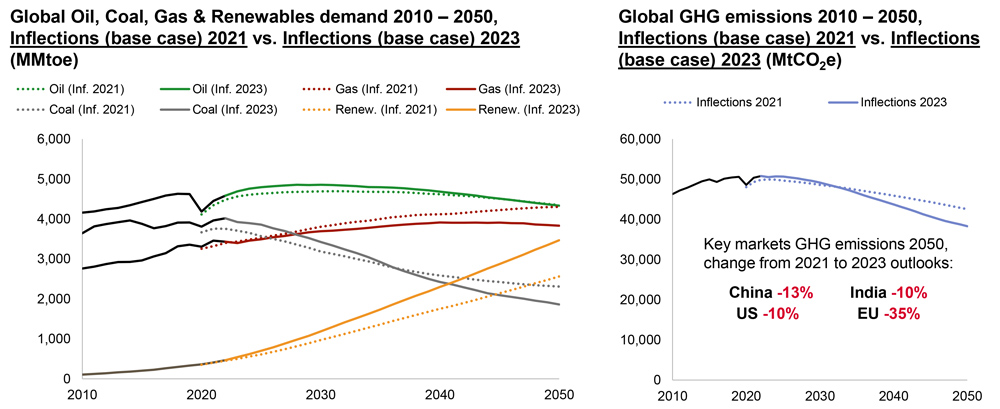Michigan Gov. Gretchen Whitmer (D) signed a sweeping package of climate legislation into law Nov. 28, setting a 100% “clean energy” target for 2040, expanding energy efficiency programs and making it easier to site renewable projects.
The seven bills Whitmer signed in a ceremony in Detroit codify many of the goals she set two years ago in her Healthy Climate Plan and add the state to the ranks of those pledging to reach net-zero carbon emissions in less than a generation.
Whitmer said the bills, passed earlier in November by the Democratic-controlled legislature, would reduce utility bills and create thousands of new jobs. (See 100% Clean Energy, Renewable Siting Bills Heading to Mich. Governor.)
“With today’s bills, we define the future. As Michiganders, we know we have a responsibility to face climate change head-on, not only to make lives better today, but to make sure life goes on centuries from now,” she said.
The package includes the Clean Energy and Jobs Act, controversial legislation (HB 5120 and HB 5121) that gives the Public Service Commission power to approve sites for new large-scale renewable energy projects if local governments otherwise try to prevent them. Local government organizations have opposed the measures, setting up the possibility of a court challenge.
Also signed by Whitmer was the Clean Energy Future Package:
-
- SB 271 expands the current 15% renewable energy standard to 50% by 2030 and 60% by 2035. It also requires 80% “clean energy” — including renewables, nuclear and natural gas with 90% carbon capture — by 2035 and 100% by 2040. The law also sets a 2,500-MW storage target for 2030 and increases the cap on distributed generation such as rooftop solar from 1% to 10%.
- SB 273 requires utilities to boost their EE savings from 1% to 1.5% and sets the first-ever requirement for EE programs for low-income residents.
- SB 502 requires the PSC to consider environmental justice, climate, affordability and reliability in its decisions on utility integrated resource plans.
- SB 519 creates a Community and Worker Economic Transition Office in the Department of Labor and Economic Opportunity to help retrain auto, energy and construction workers who lose jobs because of the switch to electric vehicles and efforts to reduce greenhouse gas emissions.
- SB 277 codifies an existing state rule allowing farmers to remain enrolled in the state farmland preservation program even if they rent their land for solar farms.
The state Department of Environment, Great Lakes and Energy cited modeling by clean energy consulting firm 5 Lakes Energy that predicted the new policies would create nearly 160,000 jobs, cut household energy costs by at least $145/year and enable the state to obtain $7.8 billion in federal funding.
The right-leaning Mackinac Center for Public Policy, in contrast, said the policies would “raise individual electricity rates by potentially thousands of dollars per year.”
Some environmentalists criticized legislators for changing the 100% deadline from 2035, defining landfill gas and incinerated waste as renewable energy, and allowing natural gas generators to remain in operation if they include carbon capture.
Juan Jhong Chung, co-executive director of the Michigan Environmental Justice Coalition, said the legislation “completely misses the mark.”
“In fact, it opens the door for more pollution in overburdened communities,” he tweeted. “This package reflects the priorities of the utilities and lobbying groups. EJ communities expected more of Michigan’s Democratic trifecta.”
But many raved about the package, saying the new laws make Michigan a national climate leader.
Alli Gold Roberts, senior director of state policy for Ceres, said her group supported the package “in partnership with many businesses.”
Michigan is “now leading the U.S. Midwest in clean energy adoption,” Jeff Bishop, CEO of energy storage developer Key Capture Energy, told Energy Storage News. “We’re going to be seeing legislation like this all throughout the Midwest, and Michigan is just going to be the start.”
Passage of the legislation, which was opposed by Republicans, was made possible when Democrats gained control of both houses and the governor’s office for the first time since the 1980s.
“Gov. Whitmer is trying to build her national profile with the Democrat Party,” House Minority Leader Matt Hall told Fox News. “I think in order for her to build her brand with the far left and the Democrat Party, she felt she had to try to one-up them here in Michigan.”
The Legislature ended voting for the year on Nov. 9 after two Democratic representatives won mayoral races, leaving the House temporarily in a 54-54 tie.
